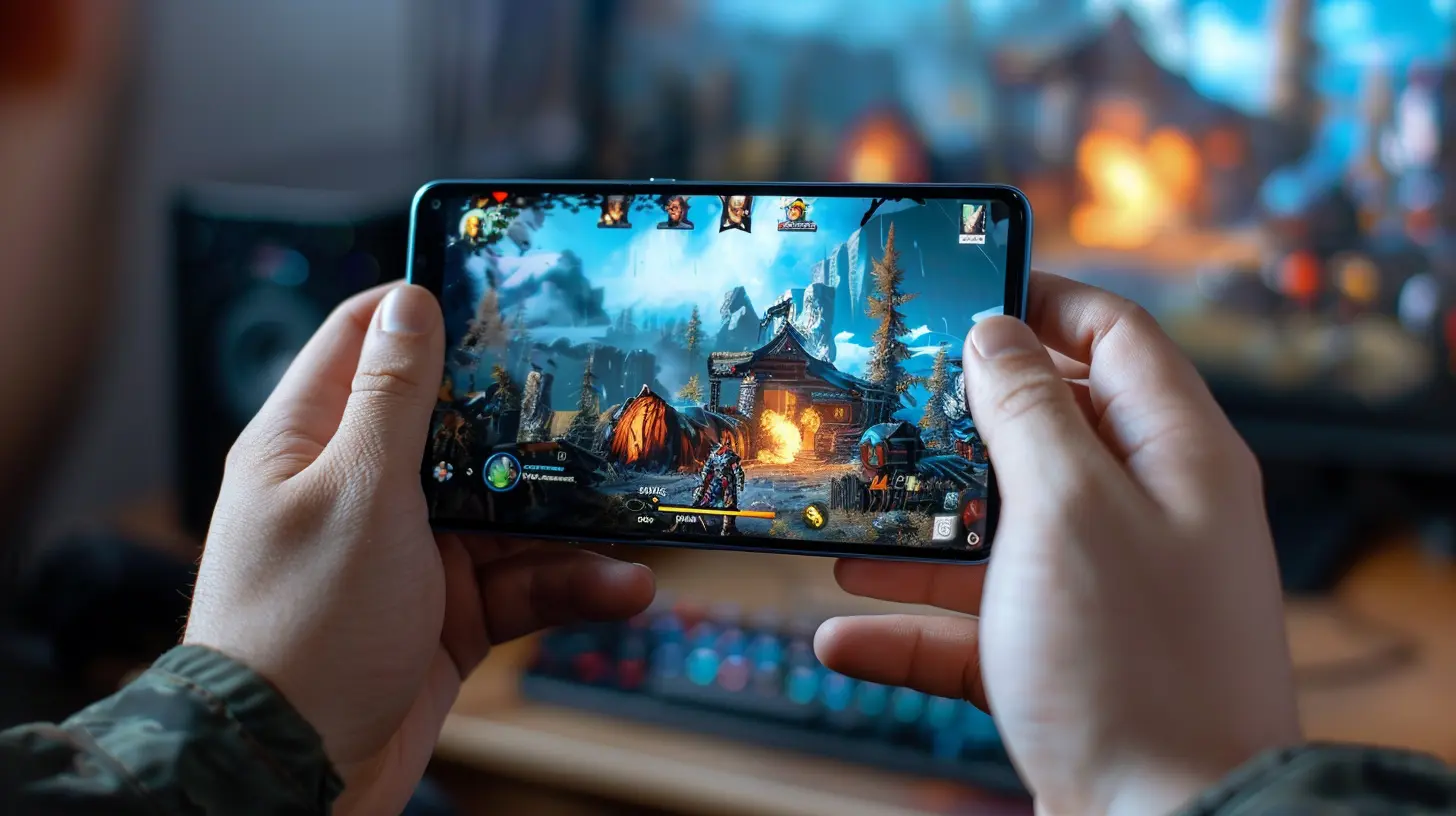The Pros and Cons of Mobile Game Emulators
18 August 2025
When it comes to mobile gaming, there's no denying its popularity. Whether it's stealing a few minutes on a subway ride or curling up on the couch to dive into a virtual world, mobile games have become a staple of modern entertainment. But let’s face it—those tiny screens and sometimes awkward touch controls can feel limiting, right? That’s where mobile game emulators come into the picture. If you’ve ever been curious about how emulators stack up, stick around because we’re about to break it all down—the good, the bad, and everything in between.
What Are Mobile Game Emulators?
Before we dig into the pros and cons, let’s get clear on what we’re talking about. Mobile game emulators are software applications that allow you to run mobile games on non-mobile devices like PCs or Macs. They essentially mimic a mobile phone’s operating system, letting you play your favorite games but with the convenience of a bigger screen, physical controls, and sometimes even improved performance. Cool, right?But, as with most things in life, mobile game emulators aren’t without their fair share of trade-offs. Let’s unpack the benefits and drawbacks so you can decide if they’re worth your time.
The Pros of Mobile Game Emulators
1. Bigger Screens Equal Better Gameplay
Let’s be real—playing mobile games on a small screen can get tiresome. Squinting at tiny text, struggling to aim, or trying to take in all the action on a cramped display can dampen the experience. Emulators let you stretch the game onto a larger PC or laptop screen, giving you a front-row seat to all the gaming goodness.Think about it: Would you rather watch a blockbuster movie on your phone or on a big, crystal-clear TV? The same logic applies here.
2. Physical Controls for Easier Play
Okay, mobile gaming has come a long way in terms of touchscreen controls, but is it just me, or are some of those controls downright frustrating? Virtual buttons can be finicky, and don’t get me started on accidental swipes. With emulators, you can connect a mouse, keyboard, or even a game controller. Suddenly, that game where you kept losing due to slippery touch controls feels more manageable.Imagine playing a racing game with an actual steering wheel-style controller or crushing your enemies in a shooter with precise mouse-and-keyboard aiming. It’s like trading in a tricycle for a superbike!
3. Improved Performance
Not everyone can afford a flagship phone with blazing-fast processors and high-refresh-rate screens. If your phone lags or overheats when running demanding games, an emulator can be a lifesaver. Most modern PCs are more than capable of handling mobile games at higher frame rates and better graphics than mid-range or older mobile devices.It’s like giving your game a gym membership—it comes back stronger, faster, and cooler (literally).
4. Convenience for Content Creators
Are you a streamer or a YouTuber who covers mobile games? You know the struggle of trying to mirror your phone screen to a PC while dealing with lag or poor-quality recordings. Emulators make life easier by running the game directly on your computer, ensuring smoother gameplay recordings and hassle-free streaming.Plus, multitasking becomes a breeze. Got an email to check or a quick edit to make? Alt-tab away without having to juggle between a phone and a PC.
5. Unlimited Battery Life
Let’s face it—battery anxiety is a thing. There’s nothing worse than being in the middle of a heated match or your best run yet, only for your phone to blare that dreaded "low battery" notification. Emulators sidestep this entirely since they run on your PC’s power supply. No more interruptions, no more stress.
The Cons of Mobile Game Emulators
Of course, it’s not all sunshine and rainbows. While emulators bring a lot to the table, they’re not perfect. Here are some of the downsides you should consider.1. Not Always Legal
Here’s the elephant in the room: legality. Depending on how emulators are used and what software they rely on, they may exist in a bit of a gray area. Some emulators require you to download BIOS files or game APKs, which could potentially violate terms of service or copyright laws if obtained improperly.If ethical gaming practices are important to you (and they should be), you’ll need to tread carefully.
2. Compatibility Issues
Not all games are optimized for emulators. Some titles may refuse to run, crash unexpectedly, or display weird graphical glitches. And trust me, there’s nothing more frustrating than finally booting up your favorite game only to find it’s virtually unplayable due to compatibility problems.It’s kind of like trying to fit a square peg into a round hole—sometimes, it just doesn’t work.
3. Potential for Unfair Advantage
If you’re playing competitive multiplayer games on an emulator, you might have an edge over mobile players thanks to better controls or enhanced performance. While this might sound like a pro at first, some game developers and communities frown upon this practice. You could even get banned from certain games if the developers detect you’re using an emulator.Nobody wants to feel like they’re "that guy" in the online gaming world, you know?
4. Resource-Heavy on PCs
While emulators can level the playing field for gamers with underperforming phones, they’re not exactly lightweight software. Running an emulator, especially one that mimics modern mobile games, can hog your PC’s CPU and RAM. If your computer isn’t up to snuff, you might face lag or overheating—ironically, the very issues you’re trying to avoid by using an emulator in the first place.5. Missing Mobile-Specific Features
Certain mobile games are designed with unique features that don’t translate well to emulators. Think tilt-to-steer controls, swipe-based mechanics, or even augmented reality elements. A game that relies heavily on these won’t feel the same on a PC, and in some cases, it may not work at all.
Should You Use an Emulator?
So, now that we’ve laid it all out, how do you decide if a mobile game emulator is right for you? It ultimately boils down to how you like to game and what trade-offs you’re willing to accept. If you’re a casual gamer who just wants a bigger screen and better control options, emulators can be a game-changer (pun intended). But if you’re a competitive player or someone who values convenience over everything else, you might want to weigh the cons more heavily.Final Thoughts
Mobile game emulators are, without a doubt, a fantastic tool that can enhance your gaming experience. They offer a more comfortable, visually appealing, and performance-driven way to enjoy mobile games, particularly for those who already spend a lot of time at their PCs. But just like every shortcut in life, they come with strings attached. Whether it’s legal gray areas, compatibility hiccups, or the potential to alienate fellow gamers, emulators aren’t perfect—and that’s okay.At the end of the day, it’s about finding the best way to enjoy your favorite games, and for many, emulators are the perfect solution. Just remember to use them responsibly and respect the rules of the games you play.
all images in this post were generated using AI tools
Category:
Mobile GamesAuthor:

Leandro Banks
Discussion
rate this article
2 comments
Seraphine McFarlane
Emulators: nostalgia’s best friend or a legal minefield?
February 5, 2026 at 5:03 AM
Kristy McGee
Exciting insights! Emulators open up a world of fun!
August 21, 2025 at 3:57 AM

Leandro Banks
Thank you! I'm glad you found the insights exciting. Emulators truly do enhance the gaming experience!


